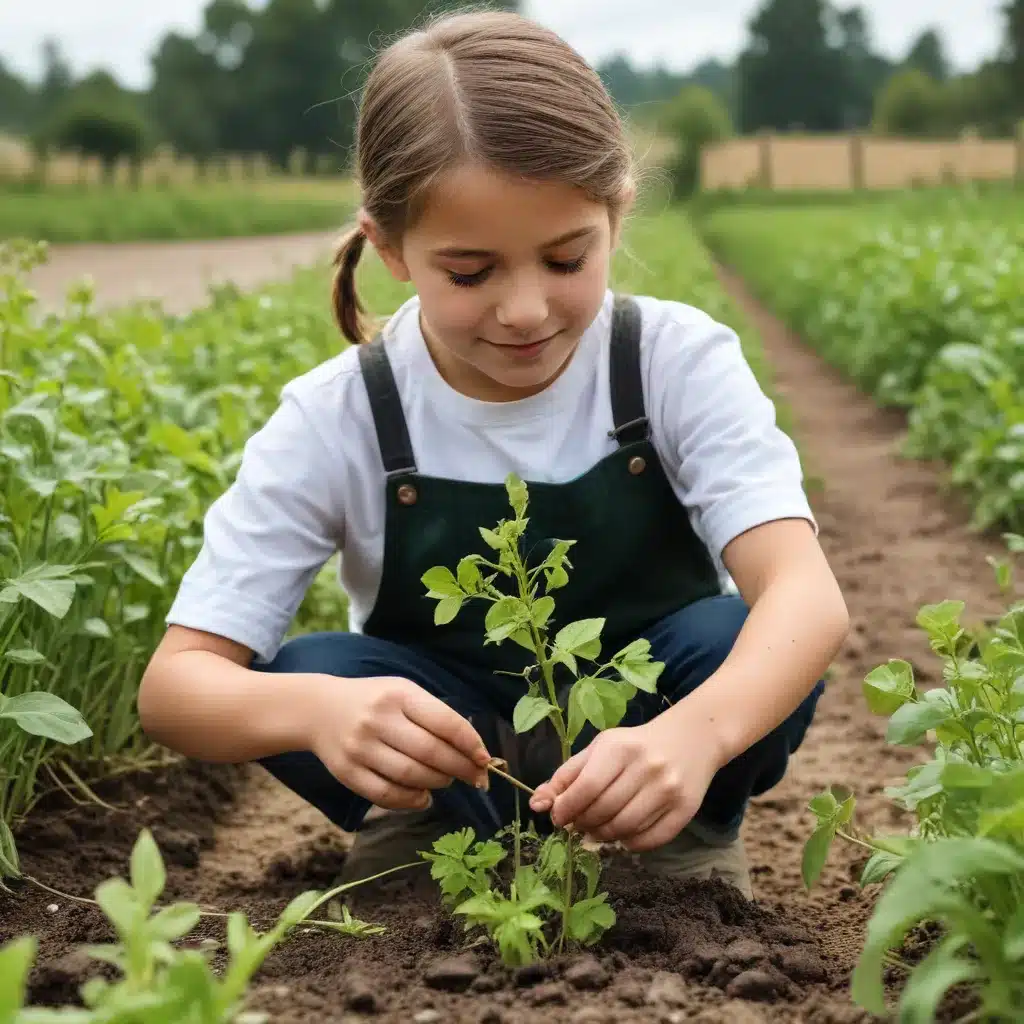
Budding Botanists: Hands-On STEAM Experiments and Explorations for Young Farmers
There’s never a dull moment on the farm – especially when you have a gaggle of curious young learners eager to get their hands dirty! At Crooked Pines Farm, we believe that kids are natural-born scientists, artists, and explorers, and we love nurturing that innate sense of wonder through hands-on STEAM (Science, Technology, Engineering, Art, and Math) activities and outdoor adventures.
From tracing the life cycle of a pumpkin seed to designing a pollinator-friendly garden, our budding botanists dive deep into the world of plants, discovering their myriad secrets and adaptations. Whether you’re homeschooling, leading a summer camp, or simply looking for enriching activities to do with your own kids, these engaging experiments and explorations will cultivate a love of nature, cultivate critical thinking skills, and just might inspire the next generation of farmers, ecologists, and environmental stewards.
The Realm of STEAM Experiments
Kids are hardwired to learn through play and hands-on discovery. That’s why we make experiential learning the foundation of our farm education programs. By encouraging young students to get up close and personal with the natural world, we tap into their innate sense of curiosity, sparking a lifelong love of inquiry and investigation.
One of our most popular activities is our “Seed Detectives” exploration, where kids examine a variety of seeds under magnifying glasses, sketch their observations, and then try to match the seeds to the plants they eventually grow into. This simple exercise not only teaches about plant life cycles and seed germination, but also introduces budding botanists to the concepts of observation, prediction, and classification – all while satisfying their urge to dig, poke, and explore.
Another hands-on favorite is our “Pollinator Pals” scavenger hunt, where kids search the farm for bees, butterflies, and other pollinating insects, learning about their vital role in the ecosystem. After documenting their findings, they use craft supplies to design their own “dream pollinators” – imaginative creatures with exaggerated features like extra-long proboscises or iridescent wings. This activity seamlessly blends science, art, and engineering, as students exercise their creativity while deepening their understanding of pollinator anatomy and behavior.
Young Farmers: A Cultivating Community
At Crooked Pines, we believe that the best way to nurture young minds is to create a collaborative, supportive learning environment. That’s why we encourage peer-to-peer teaching, where more experienced “junior farmers” guide their younger counterparts through activities and explorations. This not only builds leadership skills, but also fosters a sense of community and shared excitement around discovering the natural world.
One of our favorite community-building exercises is our “Seed Swap” – an annual event where students bring in seeds they’ve harvested from their home gardens or family farms. As they exchange stories and tips, they learn about the diversity of plants that can thrive in our region, and gain a deeper appreciation for the role that seed saving and heirloom varieties play in sustainable agriculture.
Beyond our on-farm programs, we also love hosting family workshops that bring together multiple generations. Whether it’s designing DIY rain barrels, creating succulent terrariums, or learning the art of no-till gardening, these interactive sessions allow parents, grandparents, and kids to work together, share their knowledge, and cultivate new skills.
Botanical Discoveries: Uncovering Nature’s Secrets
Of course, no farm education would be complete without a healthy dose of outdoor exploration! That’s why we’ve developed a network of nature trails winding through our fields and woodlands, each one brimming with opportunities for hands-on discovery.
One of our most popular trails is the “Leaf Detectives” trek, where kids use field guides and magnifying lenses to identify different tree species based on the shapes, textures, and venation patterns of their leaves. As they hike, they also observe how leaves change over the course of the seasons, learning about plant adaptations and ecosystem dynamics.
Another favorite is the “Soil Explorers” trail, where students dig into the rich, loamy earth to uncover the myriad organisms – from earthworms to mycorrhizal fungi – that call the ground beneath our feet their home. By studying the complexities of soil health and the interdependence of living systems, young farmers gain a deeper appreciation for the delicate balance of the natural world.
Sustainable Gardening Practices
Of course, a hands-on farm education wouldn’t be complete without plenty of opportunities for budding green thumbs to get their hands dirty in the garden! At Crooked Pines, we take pride in our organic growing practices, and we love sharing our knowledge of sustainable horticulture with the next generation.
One of our most popular gardening workshops is our “Seedling Starters” class, where kids learn how to sprout their own plants from seed. They explore the ins and outs of germination, design their own seed-starting kits, and even get to take home a tray of freshly sprouted seedlings to transplant in their home gardens. As they nurture their plants through the growing season, they develop a deeper understanding of the care and attention required to cultivate healthy, vibrant crops.
We also host regular composting demonstrations, where kids learn how to transform food scraps and yard waste into rich, nutrient-dense soil. By understanding the carbon and nitrogen cycles that drive the decomposition process, they gain an appreciation for the elegant cycles of nature – and the importance of soil health in sustainable agriculture.
Whether you’re looking to inspire the next generation of farmers, naturalists, or environmental stewards, the hands-on STEAM explorations and outdoor adventures at Crooked Pines Farm are sure to spark wonder, curiosity, and a lifelong love of the natural world. So grab your gardening gloves, lace up your hiking boots, and get ready to cultivate a new crop of budding botanists!


